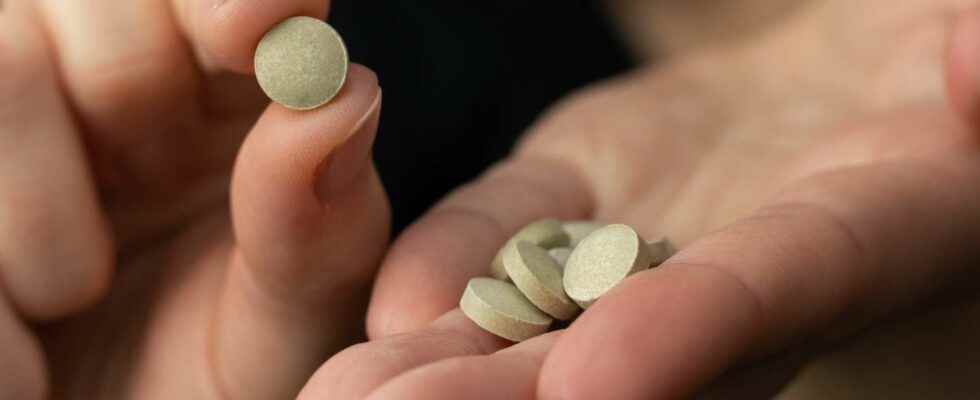The conflict in Ukraine, which began on February 22, 2022, has revived fears of nuclear fire in Europe and the memory of the radioactive cloud following the accident at the Chernobyl power plant. If the population is exposed to radioactivity, it can protect itself with iodine tablets which are provided by pharmacists in the event of a major risk.
You will also be interested
[EN VIDÉO] What is the most powerful nuclear bomb in history? On October 30, 1961, a 57 megaton atomic bomb exploded over the site of Novaya Zemlya, Russia. Baptized Tsar Bomba, it is the most powerful bomb in history.
The iodide of potassium is the best known of the antidotes in case ofnuclear accident. It comes in the form of tablets which, when absorbed, generateiodine stable. ” I’ingestion [de ces comprimés] allows you to saturate the thyroid in iodine. This prevents radioactive iodine from attaching to it explains François Chast, head of the Pharmacology-toxicology department at the Hôtel-Dieu in Paris.
In case of exposure of population to radioactive elements, it is recommended that adults be given one 100 milligram iodine tablet. For a newborn, one eighth of a tablet, and for children under 40 kilogramshalf a tablet “. In the event of prolonged exposure, it is possible to renew the administration.
They are supplied to the population near nuclear power plants
People living less than 10 kilometers from a nuclear plant should, in principle, have these tablets in their family pharmacy. ” They are provided free of charge by pharmacists, themselves supplied by the Central Armed Forces Pharmacy “, he specifies. And in case of necessity, if they were without tablets, ” pharmacies would be able to manufacture liters of oral solution diode“.
Risks for the thyroid
In any case, these tablets should only be administered on the instructions of the health authorities. Indeed, their absorption without significant exposure to radioactive agents is not without risk. ” Iodine acts on the regulation of the thyroid. Altering its balance can lead to adverse effects, such as hyperthyroidism or, eventually, hypothyroidism », specifies François Chast. Both of these disorders can cause neuropsychological and growth disturbances.
Interested in what you just read?
Subscribe to the newsletter Health question of the week : our answer to a question you ask yourself (more or less secretly). All our newsletters
